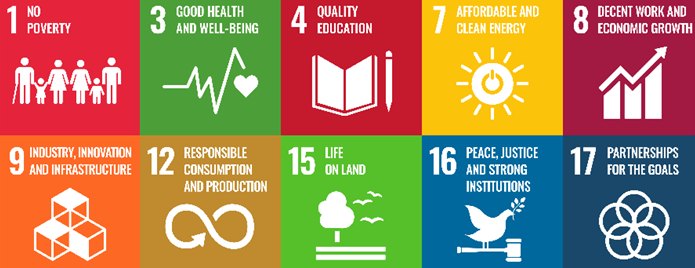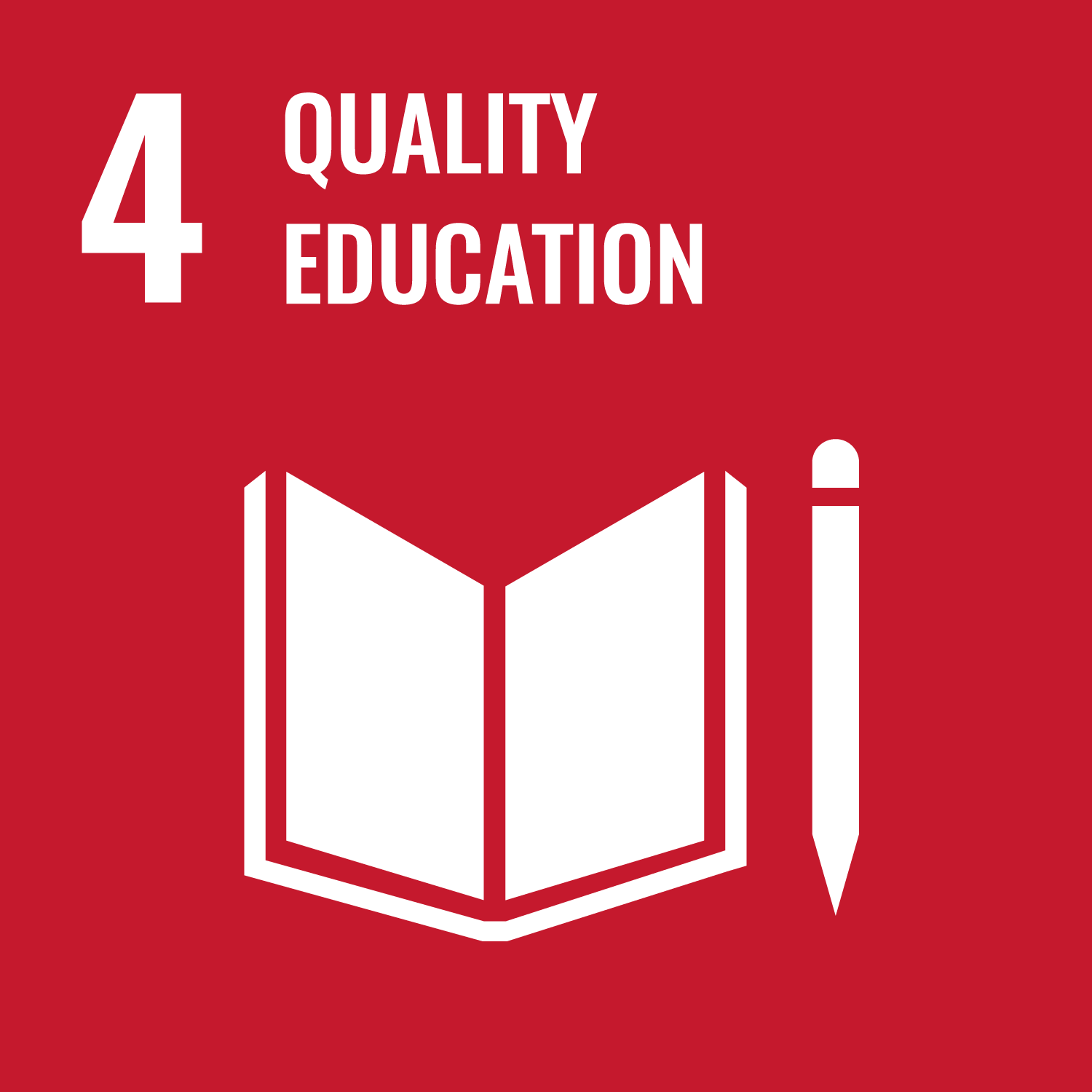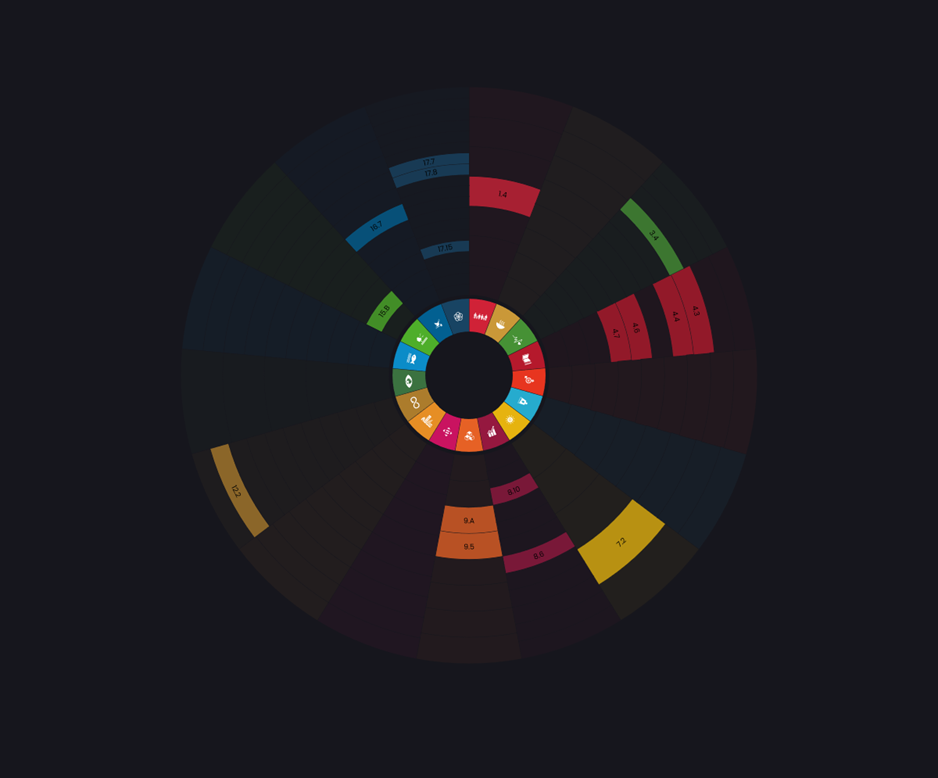Dr Noel Carroll
Associate Professor in Business Information Systems
J.E. Cairnes School of Business and Economics, University of Galway


Much of Noel's work focuses on managing and sustaining digital transformations. He has won a number of awards for teaching and research including more recently:
· 2023: Times Higher Education Award for Technological or Digital Innovation
· 2022: Teaching Innovation in IS (awarded by UK Academy for Information Systems (UKAIS))
· 2022: President’s Award for Research Excellence (Team)
· 2022: Lero Director’s prize for Education & Public Engagement
· 2022: European Institute of Innovation & Technology (EIT) - Innovation Vision Action Fellow Award
Noel's work contributes to these SDGs

Noel founded the Citizen Development Lab at the University of Galway, which focuses on low-code/no-code for digitalisation, innovation and digital transformation within organisations.
Europe is struggling to keep up with the digital revolution. The evidence? Eurostat (2023) report that only 54% of EU citizens possessed basic or above-basic digital skills. More than a third of the global population has no access to the online world. More needs to be done to ensure equal access to the innovation opportunities that digital transformation offers (World Economic Forum, 2023). For example, citizen development offers a novel approach to support users with little-to-no coding experience to build digital applications. To drive this initiative at the University of Galway, the Citizen Developer Lab was funded and established in 2022 to carry out research and training on digital transformations through low-code and no-code platforms. This research has several major contributions within an educational, business and societal context.
Citizen Development is a method that hides the sophistication and complexity of coding but empowers subject matter experts. Also known as low-code/no-code (LC/NC), this approach leverages recent advances in technologies such as artificial intelligence and machine learning to hide code complexity while delivering on code functionality. Citizen Development empowers individuals within organisations.
Key Target 4.4: Increase the number of people with relevant skills for financial success

Teaching

Noel enjoys teaching through mediums such as traditional classroom, online and/or blended learning environments at both undergraduate and postgraduate levels.
Managing Digital Transformations Digital transformation is a process that aims to improve an organisation by initiating significant changes through a combination of information, computing, communication and connectivity technologies. Digital transformation has become a high global priority on organisational agendas. Public and private organisations have growing expectations on digital transformations to make a strategic contribution to their survival and success. The module prompts students to examine to what extent innovations should proceed, taking waste and environmental impact into account. Low code/No code (LC/NC) is used to democratise digital transformations to empower subject matter experts to design, develop and deploy applications, for example, an area in rural Nigeria that is using LC/NC to avail of electricity for its everyday needs.
Contributing to Targets: 4.2 Equal access to quality pre-primary education; 8.10 Universal access to banking, insurance and financial services; 9.5 Enhance research and upgrade industrial technologies
Business Intelligence and Analytics Business Intelligence and Analytics enables organisations to exploit data and information systems (IS) at their disposal to maximise organisational performance. This course provides a solid foundation in the study of Business Intelligence and Analytics. It examines topics such as the use of electric vehicles to evaluate what other impacts will this have, for example, through the impact of data centres on the environment. It provides learners with a portfolio of business and analytical methods for solving problems and supporting decision-making.
Noel also supervises major projects in Information System Management that use data analytics to examine the broader impact of technology innovation.
Contributing to Targets: 4.4 Increase the number of people with relevant skills for financial success; 12.2 Sustainable management and use of natural resources
Engagement
Noel's research interests include seeking ways to support organisations in developing and managing transformation strategies in software development, digital innovation and health informatics for multinationals, SMEs and start-ups. Specifically, he has examined new (interdisciplinary) theoretical perspectives around normalisation and sustained efforts becoming embedded in transformation processes.
Noel has recently worked with the Project Management Institute to lead, experiment and empower people regardless of their background to use technology to solve problems, reducing the digital divide using low code/no code.

Direct impact SDG Targets
Target 1.4 - Equal rights to ownership, basic services, technology and economic resources
Target 3.4 - Reduce mortality from non-communicable diseases and promote mental health
Target 4.3 - Equal access to affordable technical, vocational and higher education
Target: 4.4 - Increase the number of people with relevant skills for financial success
Target: 4.6 - Universal literacy and numeracy
Target: 4.7 - Education for sustainable development and global citizenship
Target: 7.2 - Increase global percentage of renewable energy
Target: 8.6 - Promote youth employment, education and training
Target: 8.10 - Universal access to banking, insurance and financial services
Target: 9.5 - Enhance research and upgrade industrial technologies
Target: 9.A - Facilitate sustainable infrastructure development for developing countries
Target: 12.2 - Sustainable management and use of natural resources
Target: 15.B - Finance and incentivize sustainable forest management
Target: 16.7 - Ensure responsive, inclusive and representative decision-making
Status: 17.7 - Promote sustainable technologies to developing countries


Research

Featured Publications
Noel's research interests include seeking ways to support organisations in developing and managing transformation strategies in software development, digital innovation and health informatics for multinationals, SMEs and start-ups. Specifically, he has examined new (interdisciplinary) theoretical perspectives of the broader impacts of technology on society, including on new work practices, democratising information in the workforce and healthcare.
|
References |
SDGs |
|---|---|
|
Koukouvinou, P., Holmström, J. and Carroll, N. (2023). Sustainability through Normalization: How Sustainability is Enabled and Constrained by Data in Sustainability Initiatives. Technology and Sustainable Development 2023 (TSD23), Halden, Norway. |
15.2 |
|
Carroll, N., Conboy, K., Hassan, N. R., Hess, T., Junglas, I. and Morgan, L. (2023). Problematizing Assumptions on Digital Transformation Research in the Information Systems Field. Communications of the Association for Information Systems, 53(1), 15. |
9 |
|
Carroll, N., Hassan, N. R., Junglas, I., Hess, T. and Morgan, L. (2023). Transform or be transformed: the importance of research on managing and sustaining digital transformations. European Journal of Information Systems, 32(3), 347-353. |
9 |
|
Carroll, N. and Conboy, K. (2020). Normalising the “new normal”: Changing tech-driven work practices under pandemic time pressure. International Journal of Information Management, 55. |
9 |
|
Carroll, N., Morgan, L. and Conboy, K. (2018). Examining the impact of adopting inner source software practices. Proceedings of the 14th International Symposium on Open Collaboration, OpenSym 2018. |
17 |
|
Carroll, N. (2017). How is value created within an inner source environment? Proceedings of the 13th International Symposium on Open Collaboration, OpenSym 2017. |
17 |
|
Edison, H., Carroll, N., Morgan, L. and 1 more (...) (2020). Inner source software development: Current thinking and an agenda for future research. Journal of Systems and Software, 163. |
17 |
|
Edison, H., Carroll, N., Morgan, L. and 1 more (...) (2018). An investigation into inner source software development: Preliminary findings from a systematic literature review. Proceedings of the 14th International Symposium on Open Collaboration, OpenSym 2018. |
17 |
|
Carroll, N., Richardson, I., Moloney, M. and 1 more (...) (2018). Bridging healthcare education and technology solution development through experiential innovation. Health and Technology, 8(4), 255-261. |
4 |
|
Carroll, N. and Richardson, I. (2017). A disciplined innovation approach to health technology solutions. HEALTHINF 2017 - 10th International Conference on Health Informatics, Proceedings; Part of 10th International Joint Conference on Biomedical Engineering Systems and Technologies, BIOSTEC 2017, 5389-5395. |
9 |
|
Carroll, N. (2018). Open innovation: Assessing the socio-economic factors of Global Software Development. Intelligent Systems: Concepts, Methodologies, Tools, and Applications, 31-53. |
9 |
|
Carroll, N. (2017). Open innovation: Assessing the socio-economic factors of global software development. Computer Systems and Software Engineering: Concepts, Methodologies, Tools, and Applications, 1374-1396. |
9 |
|
Carroll, N., Richardson, I. and Travers, M. (2017). Uncovering key factors for a hospital IT change strategy. HEALTHINF 2017 - 10th International Conference on Health Informatics, Proceedings; Part of 10th International Joint Conference on Biomedical Engineering Systems and Technologies, BIOSTEC 2017, 5268-5275. |
3 |
|
Abbas, R. M., Carroll, N. and Richardson, I. (2020). A Patient's perspective on decision-making for the adoption of digital care pathways. HEALTHINF 2020 - 13th International Conference on Health Informatics, Proceedings; Part of 13th International Joint Conference on Biomedical Engineering Systems and Technologies, BIOSTEC 2020, 447-454. |
3 |
